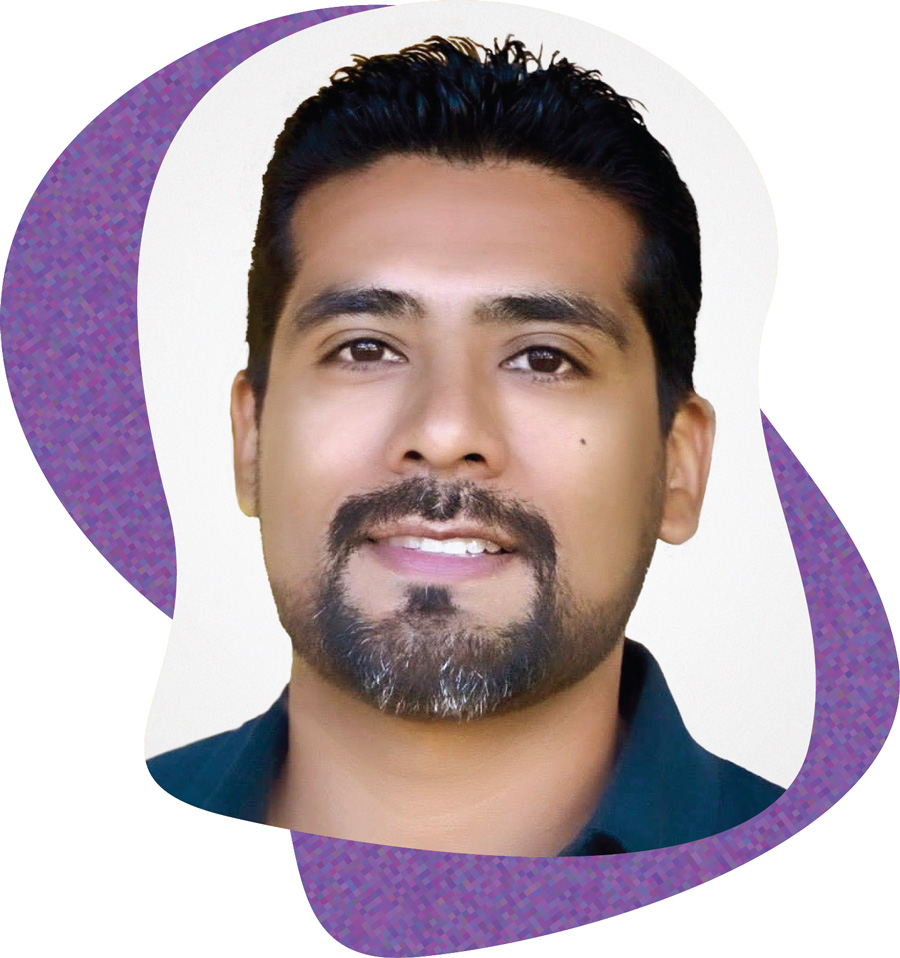
Can you tell us about how you grew up and how that has shaped your world and educational views?

We could be of different political perspectives. We can be of different backgrounds. But what’s important is that when we enter the school house, we reflect on how our background influences our treatment of others. And then once we reflect on that, we use practices that are strength-based or asset-based, which are all about making sure we see our children, regardless of where they come from, as being contributors to the education process. One activity, for example, that’s very important is to have children share their stories with us, and that we celebrate those stories of survival. But also letting children know that my job as an educator is also to teach you to thrive. That plus high rigor academics with high expectations is the magic formula.
And that’s when we get a step closer to the work of equity. Giving teachers strategies to connect with students. Uncovering and valuing children’s stories, providing them positive, emotional interactions on a day-to-day basis, and then affirming their futures.
I personally lost learning from third grade to 11th grade. I was going to school physically, but my mind wasn’t there for various reasons. I didn’t do any homework, any assignments. My learning loss was for eight years. And it took me junior year of high school, senior year of high school and freshman year of college to catch up from all that learning loss. That was a long, long time of learning I was able to catch up on in three years. And the reason I say this is because some of our children, it’s going to take them some time before they can actually accelerate their learning.
And so, should we focus on academics? Absolutely. High rigor and high expectations are very important. But first and foremost, we have to focus on the social-emotional support, because if we don’t have that foundation, our students are going to continue to fall behind.

The California native, who graduated from Newark Unified School District in the East Bay area of Northern California before attending California State University, Sacramento, has co-hosted “The Talk” on CBS and sits on the judge’s panel of Bravo’s “Project Runway.”
Welteroth is a New York Times-bestselling author following the release of her 2019 book, More Than Enough: Claiming Space for Who You Are No Matter What They Say. The memoir won the 2020 NAACP Image Award for Outstanding Literary Work.
She is also a podcast host and award-winning journalist who provides unique insight on today’s youth as the former editor-in-chief of Teen Vogue. Welteroth was the youngest person to ever serve as an editor-in-chief at a Condé Nast publication and the second person of African American descent to hold the title in the company’s history. She used her position to prioritize diversity and social justice coverage during her tenure from 2016 to 2018.
The Los Angeles resident is a leading expert and advocate for the next generation of changemakers, according to her website. “It’s always going to be a through line of my career … I’m always going to be fighting for young people to have their voices heard,” Welteroth said in a 2018 interview with Forbes.

“Under her leadership she was able to help make this shift at Teen Vogue to really lift up youth voice as advocates, changing the narrative on young women and positioning them as change agents at a pivotal time,” said Naomi Eason, Assistant Executive Director of Member Services at CSBA. “What we hope our members will be excited about is not only hearing this fresh perspective of youth as change makers, but also hearing her perspective on diversity and the value of diversity. What we saw at Teen Vogue was Elaine prioritizing diverse narratives. We’re excited to have her talk to our members about making shifts in how we think of young people in education.”
Welteroth’s presentation at AEC will center around the next generation of change makers, the impact of young people’s voices and encouraging youth leadership in education. Her words will be especially timely as CSBA also promotes the critical role of student board members.
“This year’s is a special conference because our Second General Session features student speakers,” Eason said. “We will have seven panelists including current and former student board members. I think Elaine is a nice complement as an adult ally around why it’s important to lift up student voices.”
Welteroth was appointed a Cultural Ambassador for Michelle Obama’s When We All Vote initiative in 2020. In addition to writing credits on hit Freeform series “Grown-ish,” her work has appeared in The New York Times, British Vogue, Glamour and The Hollywood Reporter.